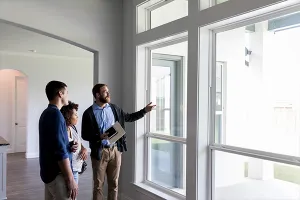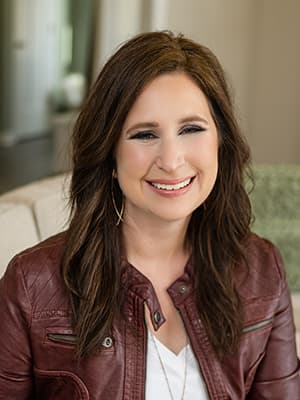
A home that feels haunted—with mysterious creaky floorboards, groaning pipes or even whispers of the supernatural—doesn’t scare most home buyers, as long as the price is right. More than half of home buyers say they’d be brave enough to purchase a haunted home—but about a third say it should come at least $50,000 below the asking price, according to a newly released survey from Clever Real Estate.
While these surveyed buyers don’t seem to spook easily, real estate agents say some homes give them the creeps. “I am in and out of so many houses, and a couple of times there are some houses that just feel off—they can be a little creepy,” says Kourtney Pulitzer, a real estate professional with Sotheby’s International Realty in Palm Beach, Fla. “When you go in, there’s just something about the energy in the house.”
She’s not alone in that feeling—another agent agrees homes can hold onto the energy of past owners. “You can feel when a home doesn’t feel good—like when a family’s going through a divorce or there’s been trauma there,” says Kati Spaniak, a real estate pro with eXp Realty based in Chicago.
Many home buyers, however, are able to overcome those eerie feels and say they would be more negatively swayed by other common real estate frights when perusing homes for sale.
Buyers’ Real Frights in Real Estate

Scarier than ghosts are home repairs, say a majority of the 1,000 consumers surveyed by Clever Real Estate.
Mary Harmon Young, broker-owner of Mary Harmon & Co. in Tuscaloosa, Ala., recalls one particularly hair-raising discovery: “We opened the door thinking it was a bedroom,” she says. “There was what we now know is called cellar fungus—it’s like a black, hairy vine that had grown across the entire floor. I had to Google it afterward because I’d never seen anything like it.”
Needless to say, she and her buyers quickly exited the home.
Backing up those findings: About half of 2,000 Americans surveyed by LendingTree say they’d rather live in a haunted house than deal with mold. Forty-one percent prefer a home with spooky vibes over living next to bad neighbors, and 39% would take ghosts over structural issues, too.
“In Florida, I always tell my buyers to get an air quality test,” Pulitzer advises. “Mold is rampant here. Mold can be remediated, but you should know if it’s there. And if you’re not conducting an air quality test, you’re not going to know—and that’s not something you want to find out later.”
Agents may find home buyers’ biggest fears are unexpected homeownership costs and high interest rates—more so than anything supernatural. Many buyers in the Clever Real Estate Survey also say they’d choose hauntings over a home with frequent break-ins, no internet, constant home construction or—gasp—bad cell phone reception.
Who You Gonna Call? (Not the Ghostbusters!)
For the one in five homeowners who believe they have lived with ghosts, most say it’s not so bad. Sure, it means they have to contend with strange noises, feelings of being watched, eerie rooms or sudden cold spots and strange shadows around the home. But to 30% of haunted homeowners, they say cohabitating with ghosts is better than trying to afford a new home.
However, here’s the twist: When it’s time to sell, 68% of homeowners admit they wouldn’t disclose their home’s paranormal activity to potential buyers. Only four states—New York, New Jersey, Massachusetts and Minnesota—have specific laws requiring sellers to disclose hauntings, according to Clever Real Estate. In other states, it’s up to the buyers to do their own ghost check.
And even though a haunted home wouldn’t necessarily scare buyers off, they do want to know upfront about any paranormal activity present before they close on a home. Seventy-three percent of Americans believe sellers should be legally required to share that information, the LendingTree survey finds.
“People generally want a home to be a clean slate when they move in; they want it to be in good condition,” says Matt Schulz, LendingTree’s chief consumer finance analyst. “If there are issues with a home, they want to know about them and be confident they can fix them. It’s one thing to know about termites or bad wiring or water damage, but being haunted is something else entirely. With all due respect to the Ghostbusters, that’s not something you can call someone to fix.”









